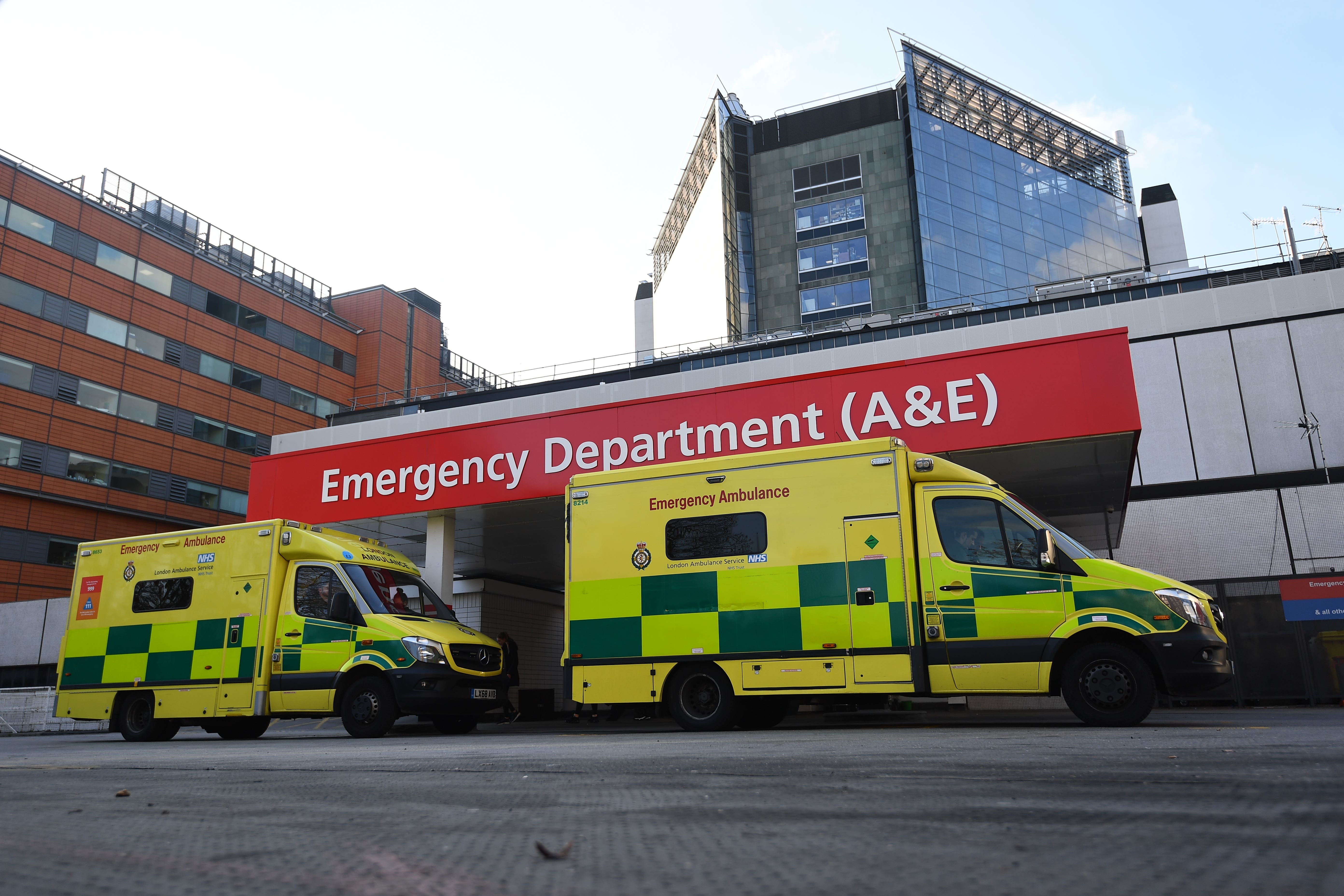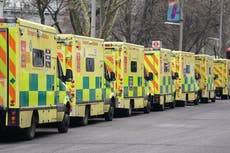‘How many people will we kill today?’: Shocking reality facing NHS ambulance workers
Exclusive: Better mental health support needed for ambulance workers who are forced to see patients die

Health workers are worrying about “how many people they will kill today” as they struggle to cope with the consequences of NHS ambulance delays, a shocking new report has revealed.
Paramedics and call-handlers have been left feeling “demoralised” as they deal with the “burden” of trying to look after sick patients facing long waits for care.
The Healthcare Safety Investigation Branch (HSIB) has now urged trusts to do more to protect workers’ mental health, saying there is an “intrinsic link” between patient safety and staff wellbeing.
The watchdog’s warning comes after The Independent revealed that a record 6,000 patients were likely to have been “severely harmed” as ambulance delays hit record levels in December. Patients who should receive a response within 18 minutes for category two emergencies – such as suspected strokes or heart attacks – were waiting an hour and a half, NHS England statistics showed.
The HSIB report, seen by The Independent, revealed that:
- Workers would often worry about “how many people” they were going to “kill today” as they feared that ambulances wouldn’t reach patients in time
- Call handlers reported having to be on the phone with deteriorating patients while ambulances were unable to respond
- One worker witnessed more than 100 severely unwell patients waiting for an ambulance when none were available
- A&E staff suffered “moral distress” when deciding which waiting patients should be priotisied for emergency care
The HSIB investigation was sparked after an unconscious patient was forced to wait three and a half hours in an ambulance outside A&E.
Staff told investigators that there were times when more than 100 patients in the second most urgent category – those suspected to be suffering from strokes or heart attacks – were waiting for ambulances, with none available to respond.
A&E staff also described having to make hard decisions about which of the patients queueing in ambulances should be taken to the emergency department for treatment.
The report said: “Staff described this as often being ‘the most unwell, unwell patient’, and said they experienced moral distress when they were unable to ‘do the right thing [by all patients]’.”
Ambulance staff also told HSIB investigators that their mental health was only prioritised “when there was time to do so” and that for some it came “too late”.
Neil Alexander, the lead investigator for the HSIB, said: “We heard words like ‘demoralising’, ‘powerless’, ‘hurt’, and ‘relentless’ during our interviews with them, and many expressed that they are feeling the burden and experiencing moral injury.
“The investigation was given many accounts, across the healthcare system, of wellbeing impacts on individuals and teams.”
On Tuesday, The Independent revealed that the NHS and the government could cut funding next month for the mental health wellbeing hubs that were set up for staff during the Covid pandemic, with some hubs having already had to close their doors.
The HSIB has now called for NHS England to include staff wellbeing in its forthcoming national patient safety strategy.
Mr Alexander said: “The recommendation we made is aimed at ensuring that the intrinsic link between patient safety and staff wellbeing is captured at a national level.
“We recognise that, until there is a whole-system response to the challenges in urgent care, staff will continue to face issues. However, in the shorter term, staff and a health psychologist have told us that in these difficult times, it is important that they are given the time and space to engage in reflective practice and get support from people with expertise in staff wellbeing.”
Martin Flaherty OBE, QAM, the managing director of the Association of Ambulance Chief Executives (AACE), which represents ambulance trusts across the country, said: “This latest report by the HSIB shines yet another spotlight on the key links between a highly pressured system, the subsequent breakdown in quality of care and consequent harm to patients, and the significant negative effects that has on staff wellbeing.
“Through AACE, the NHS ambulance sector has consistently highlighted how patients are coming to additional significant harm due to unnecessary hospital handover delays, when our ambulance crews are unable to transfer them into the care of hospital staff at emergency departments.”
According to estimates by the AACE, 9 per cent of ambulance handover delays lasting more than 60 minutes are likely to result in “severe harm”, while 85 per cent result in “some level of harm”. Based on this, at least 448,000 patients may have been harmed by delays, of which 47,000 patients may have suffered severe harm, between January 2022 and the end of December 2022.
Mr Flaherty added that being unable to respond to patients needing lifesaving care, and sometimes having patients who die or come to harm due to delays, is having a serious impact on morale.
The NHS has faced unprecedented strike action this winter, with tens of thousands of ambulances workers carrying out strikes since December. Industrial action is set to escalate next month if a deal on pay and conditions cannot be reached.
A spokesperson for NHS England said: “There is no doubt that NHS staff have faced significant challenges this winter, with record demand for urgent and emergency care, high levels of bed occupancy, difficulties discharging patients, and the combined impact of Covid and flu making this the busiest winter ever.
“The safety of both patients and staff is vital, and the NHS takes staff health and wellbeing incredibly seriously, with a range of support including dedicated helplines, wellbeing apps, and coaching, as well as the option of flexible working – and we will shortly publish an update to our patient safety strategy, which will include detail on staff safety.”
A spokesperson for the Department of Health and Social Care said it continues to support staff as they tackle the Covid backlogs, and has committed to getting 800 new ambulances onto the roads.
“For those that need it, the NHS provides physical and mental health support for staff – including targeted psychological support and treatment for those most affected,” they added.
While preparing the report, investigators spoke with emergency care and ambulance staff across the NHS. They also carried out visits to ambulance services and call centres, and spoke to national leaders.
Join our commenting forum
Join thought-provoking conversations, follow other Independent readers and see their replies
Comments


Bookmark popover
Removed from bookmarks